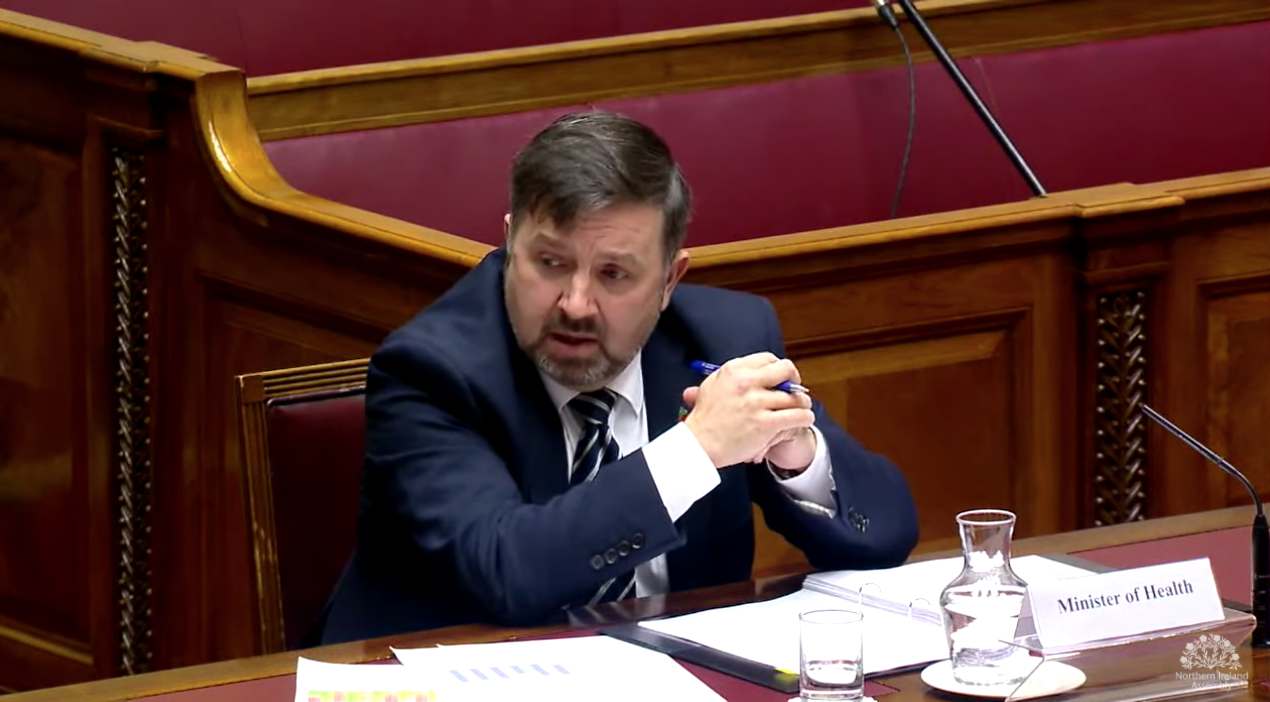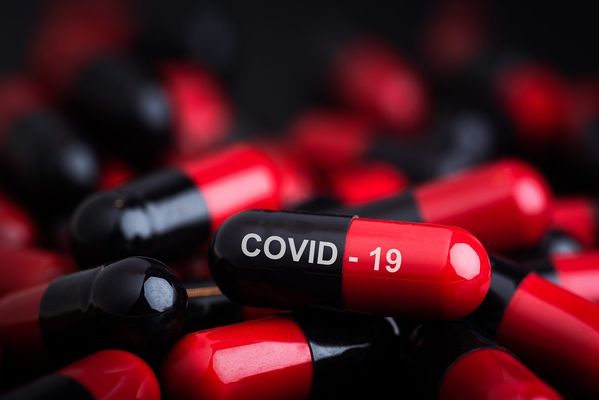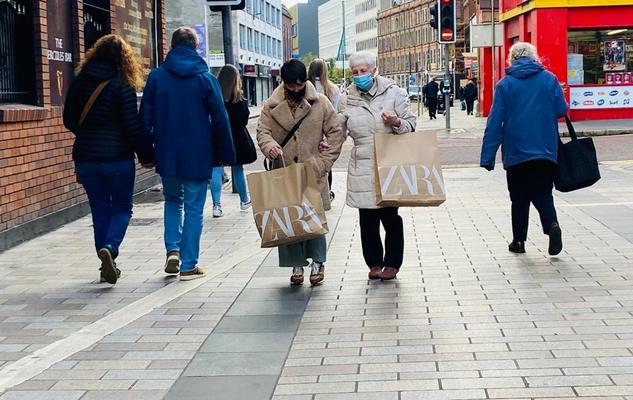The Health Committee met at Stormont on Thursday past to hear an update from the Health Minister Robin Swann in person and from the chief medical officer Dr Michael McBride by video-call.
The minister explained that there had been an increase in positive cases but that the steep increase had begun to stabilise after mitigation measures were introduced and that R number was about 0.7.
He stated that the health and social care system was under a lot of strain and that 158 critical care beds were in use.
Despite this there had been over two million out-patient appointments, over 7,000 scoping procedures and over 1,000 independent sector beds in use.
Test, track and trace needed to be expanded, he acknowledged. The Chair stated that vaccines were not an option but GPs in England had been asked to nominate practices to distribute vaccine to health care workers in the week before Christmas.
Later the committee had a briefing from the Food Standards Agency and on health protection regulations with food being considered in the UK Common Framework, the Northern Ireland Protocol and the Good Friday Agreement — all of which have assumed more importance with the election of Joe Biden to the U.S. Presidency.
Assuming more importance also is the readiness of vaccines with the British Government’s belief that a German vaccine backed by Pfizer might be ready for distribution before Christmas with first doses for essential health care workers and vulnerable elderly in care homes and at home.
20 million doses have been purchased but will the north of Ireland get its share in a timely way?
In competition to Pfizer is the vaccine being trialed in Oxford by AstraZenica.
GlaxoSmithKlein is also working on a vaccine with the French company Sanofi which say it is on track with three vaccines to produce a billion doses by the end of next year.
It might be that we will need several vaccines working in different ways to end the pandemic and eleven are known to WHO with the Russian Sputnik vaccine and the Chinese Sinovax already in use in their respective countries.
The first vaccines may be imperfect and may not prevent the infection but, nevertheless, they may reduce the symptoms and we must be prepared for that.
A few ill-informed voices are still claiming that #COVID19 is no worse than influenza. Here are the numbers of deaths in Eng & Wales from influenza for the years 2017 to 2019, and from influenza and COVID-19 for the first 8 months of 2020. It can not be clearer pic.twitter.com/JapGzR1p9J
— Dr Gabriel Scally (@GabrielScally) November 5, 2020
Many of the vaccines may be manufactured in the European Union and, hopefully, our continued membership of the customs union will allow them to arrive in the North by whatever route.
Tensions still persist between the health and the wealth lobbies. The reduction in cases in Derry after public health measures there and in Donega speaks for itself and Sinn Féin are, apparently, in favour of a further lockdown in the hospitality industry — with Ian Paisley and cardiologists arguing against.
I repeat my mantra of some weeks ago; there will be no economy in Milltown Cemetery.
Ian Paisley JR making the point that more people will die from suicide than Covid today as an argument against the proposed lockdown restrictions seems like questionable rationale
— Eimer O Loingsig (@eimer_mcauley) November 9, 2020








